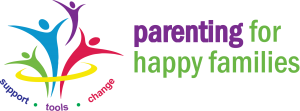A warm welcome to Jessica Todd, LPC, my guest columnist, on helping you to help your child navigate their friendships.
3 Steps to Help Your Child Navigate Friendships
Does this story sound familiar: you pick your child up from school and he/she begins to cry or is silent. You ask your child what’s wrong and they say that they have no friends, sit all alone at recess, nobody talks to them and they don’t want to go to the school anymore. As a parent, your heart immediately aches for your child and you want to jump in and do whatever you can to make your child not hurt anymore. You might even start asking your child lots of questions and state that you will email his/her teacher or call the school counselor. Before you do the above, keep reading below to get some tips on how to help your child when they experience friendship bumps.
1. Listen. I know this seems simple but too often it is not done. Parents want to jump in and fix the problem and I understand because no parent wants their child to be hurting. However, your child may not want help right now. All of us like to be heard first. So hold your tongue and let your child talk about his/her problem. Your child may just need to vent about the problem to a person (YOU) who is safe and not going to judge them.
2. Provide empathy. You want to do this even if you see some things your child could have done differently in the situation. Providing empathy looks like this; “I can understand why that bothered you.” “I can imagine that was difficult.” “I would feel frustrated too.” You don’t want to tell your child that it’s not a big deal or to just forget about it because the problem is a big deal to your child. As adults we know that friendship problems come and go but as a child they are learning about friendships and don’t have this experience yet.
3. Ask. The important thing to remember here is to ask, not tell. Ask your child what they think they are going to do about the problem. Your child may say they don’t know or they may discuss what they think they are going to do. If your child says they don’t know, then you can ask if they want help from you. They may say yes or they may say no. If they say yes, you can give them ideas and if they say no, you can remind them that you are there if they change their mind and want help. If your child discusses what they are going to do, listen, affirm their plan, provide more empathy and tell them to keep you posted on how things turn out.
In regards to the question about when you should get involved, I always say to get involved if there is a safety concern. Other than that, you want to be there to listen, provide empathy and help problem solve if your child wants help but you really want your child to handle their friendship problems. Remember it is your child’s problem not yours and by allowing your child to handle his/her problems, helps in building their confidence and self-esteem. We all want our children to feel confident and happy with themselves.
An avenue that can assist children with their friendship concerns is social skills groups.
This is a great way for children to practice a skill they may be struggling with in a focused, small group setting where they receive immediate feedback on their behavior. If you are interested in your child participating in a social skills group, scroll down and read below.
 Jessica Todd is a Licensed Professional Counselor in the State of Georgia. In addition to her private practice experience, she has experience working in both private and alternative/therapeutic school settings. She works with children, adolescents, adults, families and groups. She provides a warm, non-judgmental environment for her clients where they can freely explore their concerns. She firmly believes that each person has the answers and it is her job to walk alongside them in their journey and help guide them to living their best self.
Jessica Todd is a Licensed Professional Counselor in the State of Georgia. In addition to her private practice experience, she has experience working in both private and alternative/therapeutic school settings. She works with children, adolescents, adults, families and groups. She provides a warm, non-judgmental environment for her clients where they can freely explore their concerns. She firmly believes that each person has the answers and it is her job to walk alongside them in their journey and help guide them to living their best self. 
